Asus Zenfone 9 review: Pocket rocket
Heavyweight power in a featherweight package – is the Zenfone 9 the iPhone 13 mini of the Android world?
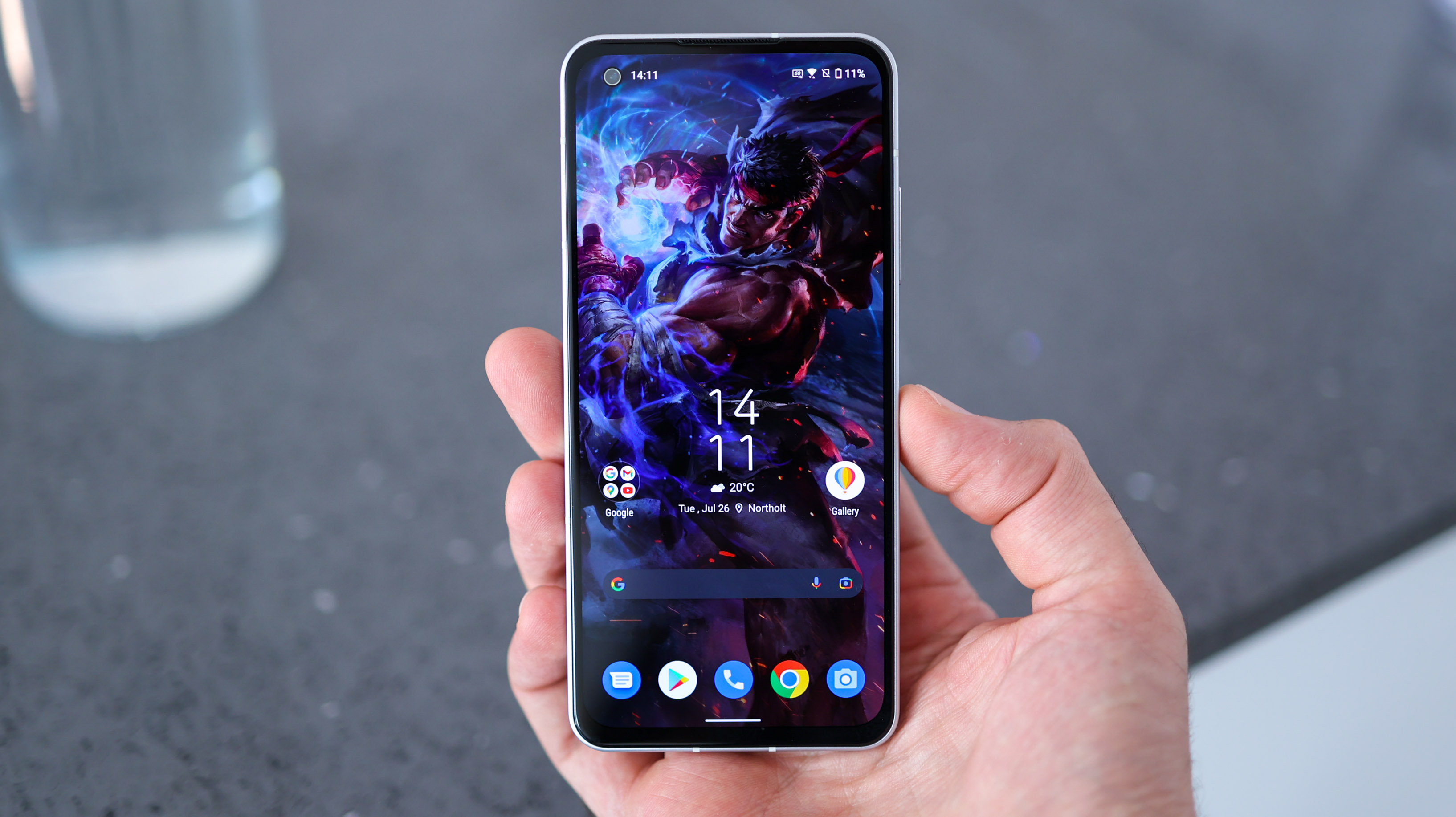
The Asus Zenfone 9 is very close to being a world-class, compact flagship smartphone, but its camera falls short of excellence and it misses out on wireless charging. Despite those drawbacks, it’s still an incredibly powerful, stable, compact Android phone with long-lasting battery life, a great screen and some charming smart features.
-
+
Seriously powerful
-
+
Smart Key is useful
-
+
Has a headphone jack
-
+
Great selfie camera
-
-
Fabric-style back could stain
-
-
Pretty thick for a small phone
-
-
Main camera is seldom great
-
-
No zoom camera
Why you can trust T3

Skinny jeans lovers, back pocket phone packers, small-handed gamers, and anyone starved of compact smartphone options – this Asus Zenfone 9 review is for you if you're looking for one of the best small phones.
From gaming phones like the ROG Phone 6 to traditional flagships like the Honor Magic 4 Pro, Oppo Find X5 Pro and the Samsung Galaxy S22 Ultra – there are countless oversized smartphones around. Pocketable and powerful Android phones, however, are few and far between.
It's okay for iPhone fans – the iPhone 13 mini enjoys near pro-grade performance, and even the standard iPhone 13 Pro isn't too big. Android users, however, have to supersize just to get decent cameras and high-end power.
So what's so special about the Zenfone 9? First up, it's powerful, packing the same internals as the excellent ROG Phone 6, which we think is the best gaming phone around. It also promises a gimbal-stabilised camera and a handy Smart Key on the side for quick access to your favourite apps and features.
But is this a case of 'small phone, big hype', or does the Zenfone 9 actually do what it sets out to – offer a compromise-free, top-tier Android smartphone in a mini package?
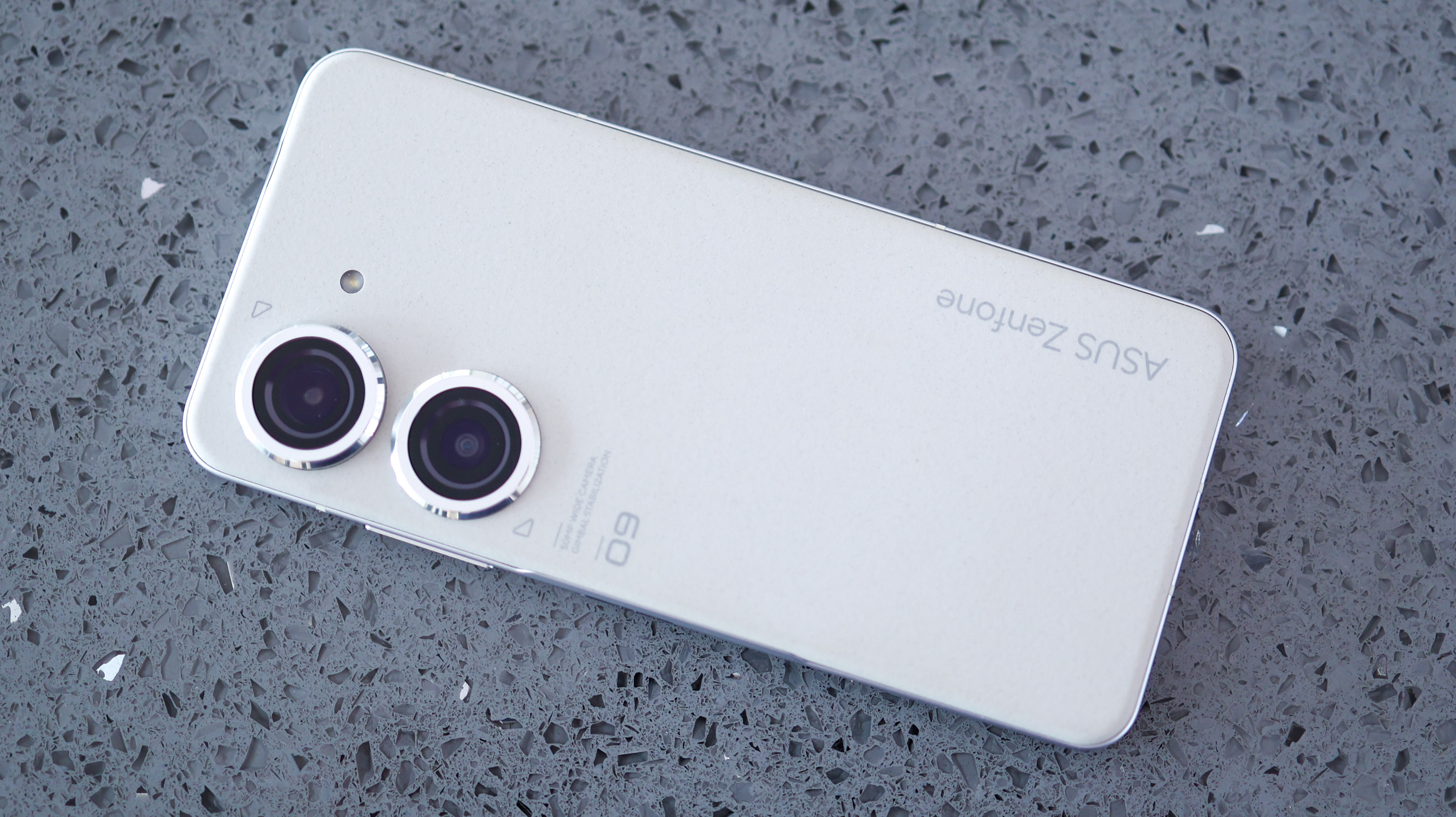
Asus Zenfone 9 review: Price and availability
The Zenfone 9 starts at £/$699 with 128GB storage and 8GB RAM. This puts it in the low-cost flagship/high-cost mid-ranger territory. Other phones that occupy this space include the slightly cheaper iPhone 13 mini and the slightly pricier Samsung Galaxy S22.
If you want more storage and grunt, then there’s a 256GB option available with a massive 16GB RAM, and it’ll cost £749/$799. You can also pick the phone up in four colours, Midnight Black, Moonlight White, Starry Blue, and Sunset Red.
Asus Zenfone 9 review: Design
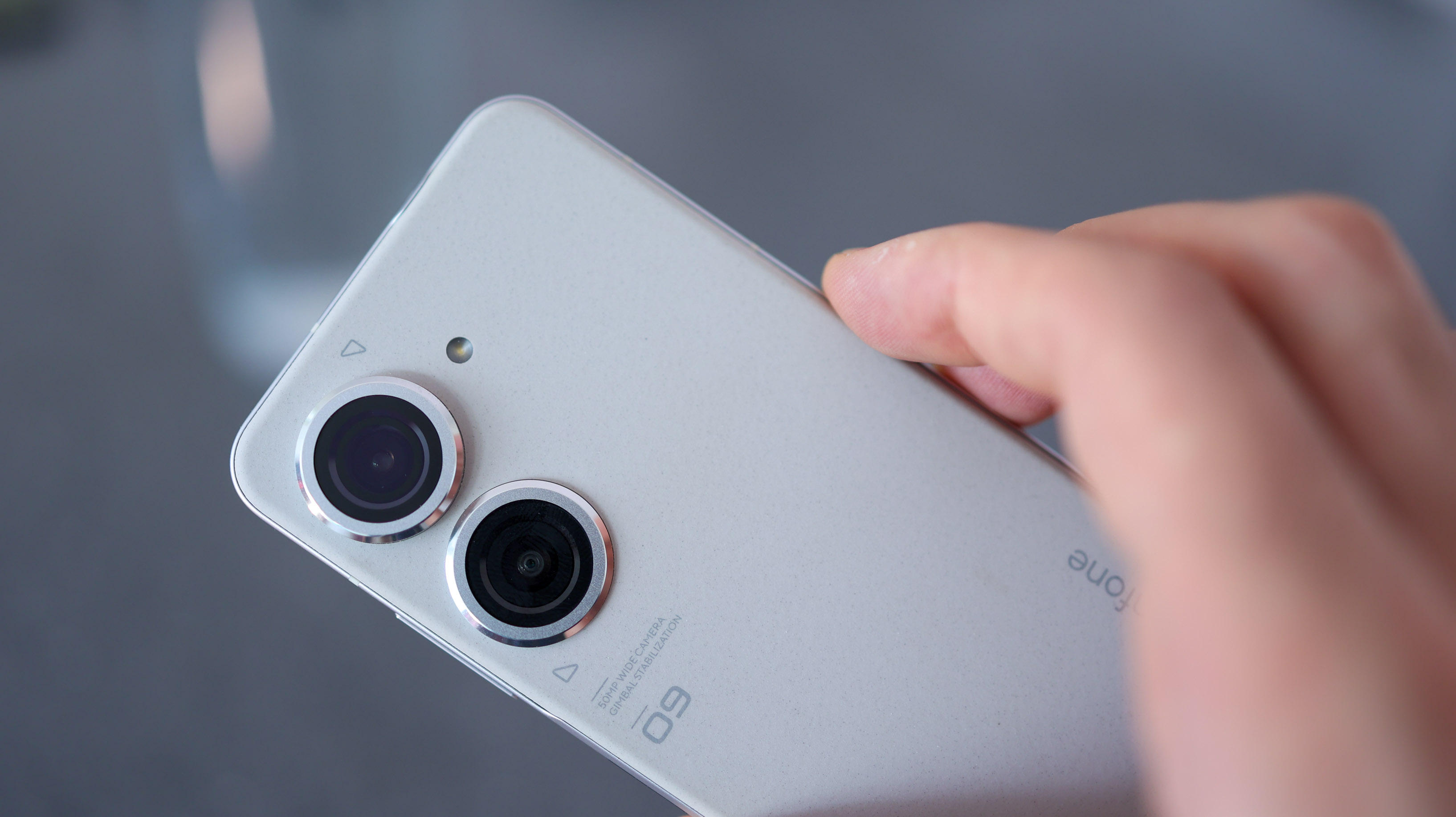
While it’s small and light, the Asus Zenfone 9 is anything but skinny. At 9.1mm thick, it’s girthier than much larger phones like the iPhone 13 Pro Max. Nevertheless, the Zenfone’s significantly smaller footprint places the phone firmly in the mini category. It’s comfortable to hold, you can reach all four corners of the screen without too much of a stretch, and the flat sides make sure it’s easy to grip.
Quirky for a few reasons, the Zenfone 9 introduces a new material around the back, which feels like a felt-style fabric, for a less stark in-hand feel when compared to traditional glass and metal.
While we’re not worried about the Zenphone 9’s durability – after all, it is IP68 dust- and water-resistant, so can handle a dunk up to 1.5 metres for 30 minutes – the novel back panel material is more prone to staining than glass or metal.
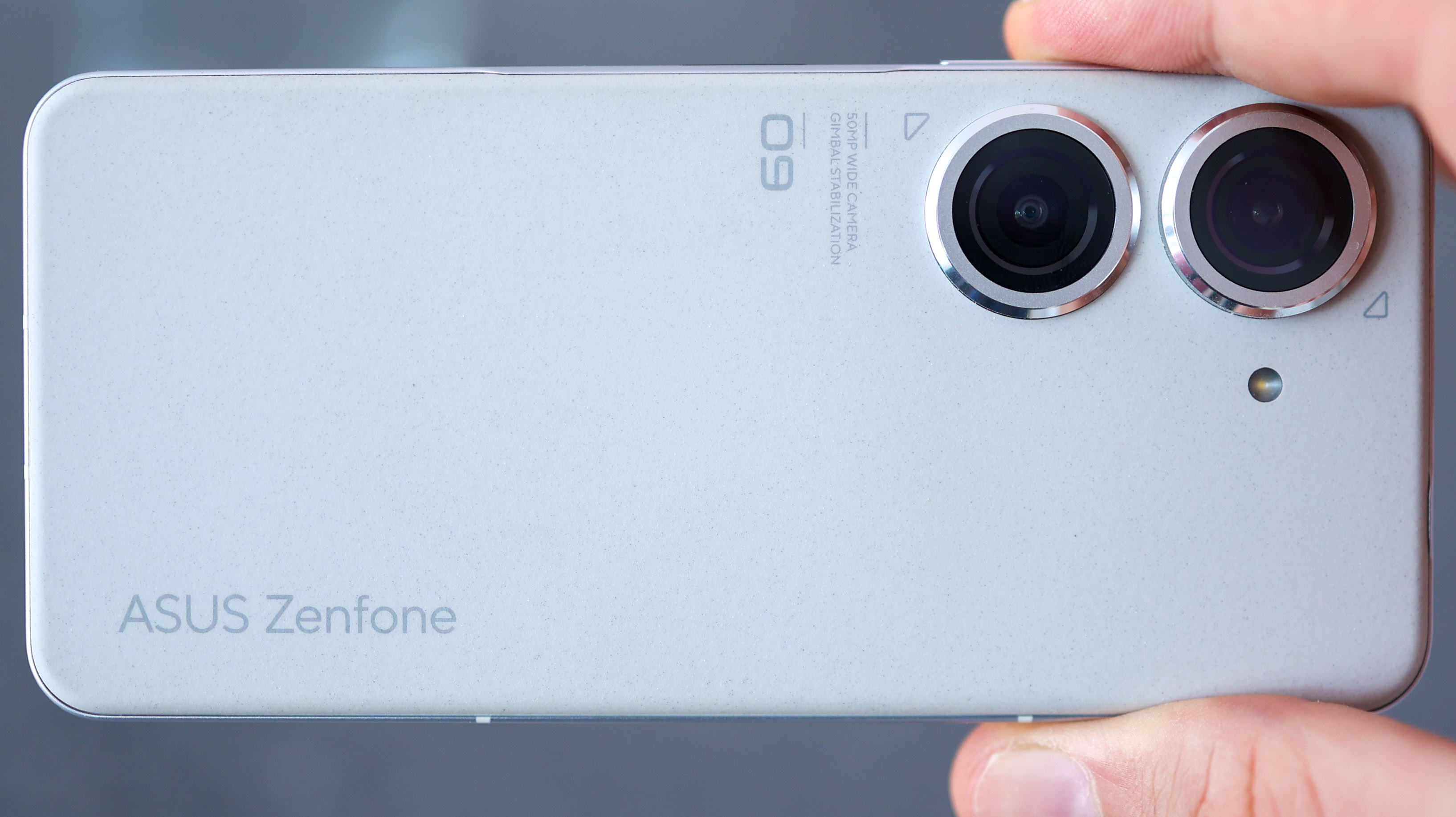
Luckily, Asus includes a slimline case in the box – and more so than on other phones, we’d urge you to use it, especially if you’ve picked up a Moonlight White version like the one we’ve been using for this review.
The hard plastic shell also covers up a few interesting design choices around the back of the phone. The words ‘Asus Zenfone’, the numbers ‘09’, some arrows and camera specs are all printed onto the back panel and vying for your attention.
Asus makes laptops and gaming laptops, and the styling makes the Zenfone feel like a phone, but made by a laptop maker. So while I don’t hate the phone’s design – I’m an out and proud geek, I can see Asus’ choices turning some off.
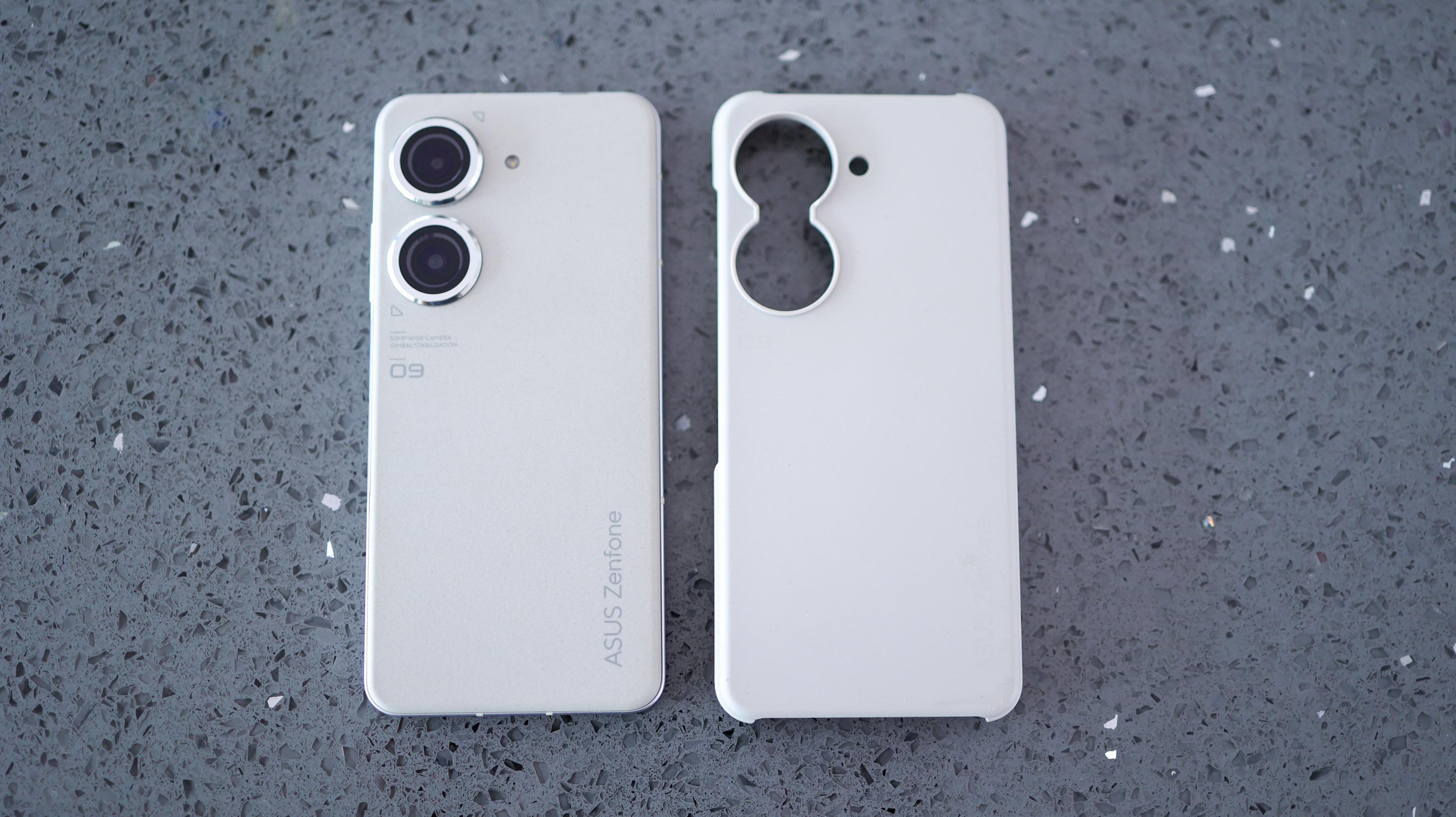
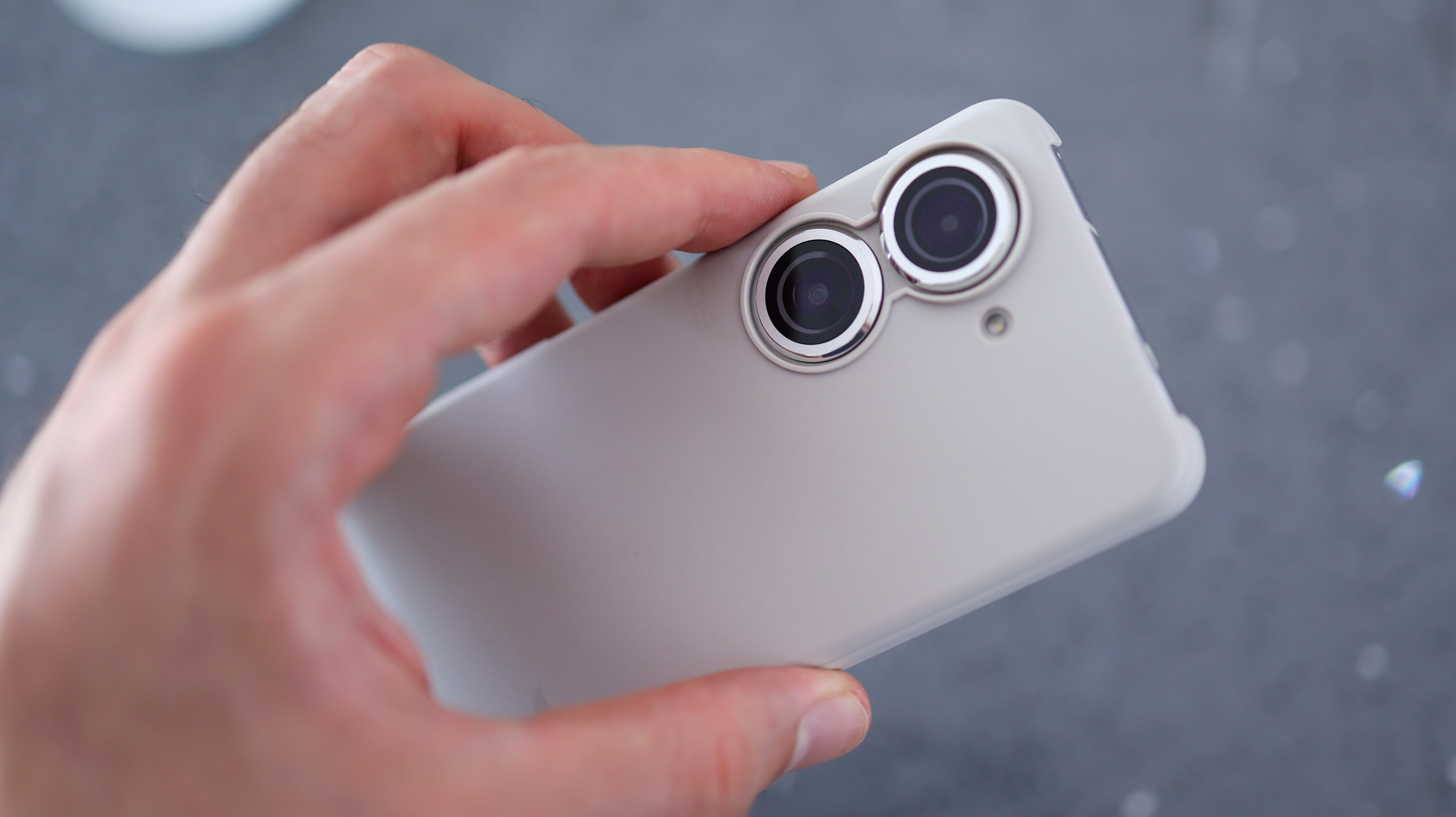
So far, we have three reasons to use the included case with the Zenfone 9: general protection; to stop the back panel getting scuffed and discoloured; and to cover up Asus’ random insignias. Now onto the fourth – hide and protect those ginormous camera bumps.
Asus’ dual-camera is the reason the Zenfone 9 is such a little thicky – they erupt out of the phone's back. The handset’s case actually draws attention away from just how massive these cameras are, while also stopping the rims from getting scuffed up when on a surface.
Predictable ports and button placement help the phone feel natural to use, with a USB-C port at the bottom and power and volume buttons on the right side. There’s a headphone jack at the top, which is novel in such a well-specced smartphone, and the phone packs stereo speakers too.
I wasn't sold on the Zenfone 9 when I first saw it – its styling is a bit, well, extra. Luckily, its maximalist styling grew on me, and it’s been such a treat using a small phone for a change. Whether you can see its style fit into your life is your own question to answer.
Asus Zenfone 9 review: Display
Sharp and smooth – the Zenfone 9’s display is unequivocally good. For starters, it’s a quality AMOLED screen at the heart, and it sits flat on the surface, no curves here. AMOLED means inky blacks and zingy colours, and the Zenfone doesn’t disappoint on those fronts, with a rich picture on-screen.
Thanks to a super-smooth 120Hz refresh rate, whether you’re swiping through Instagram or T3.com (hi!), everything glides fluidly, and the screen can automatically decide how smooth it should be, making it more power-efficient than phones like the Xiaomi 12 Lite (with its fixed refresh rate).
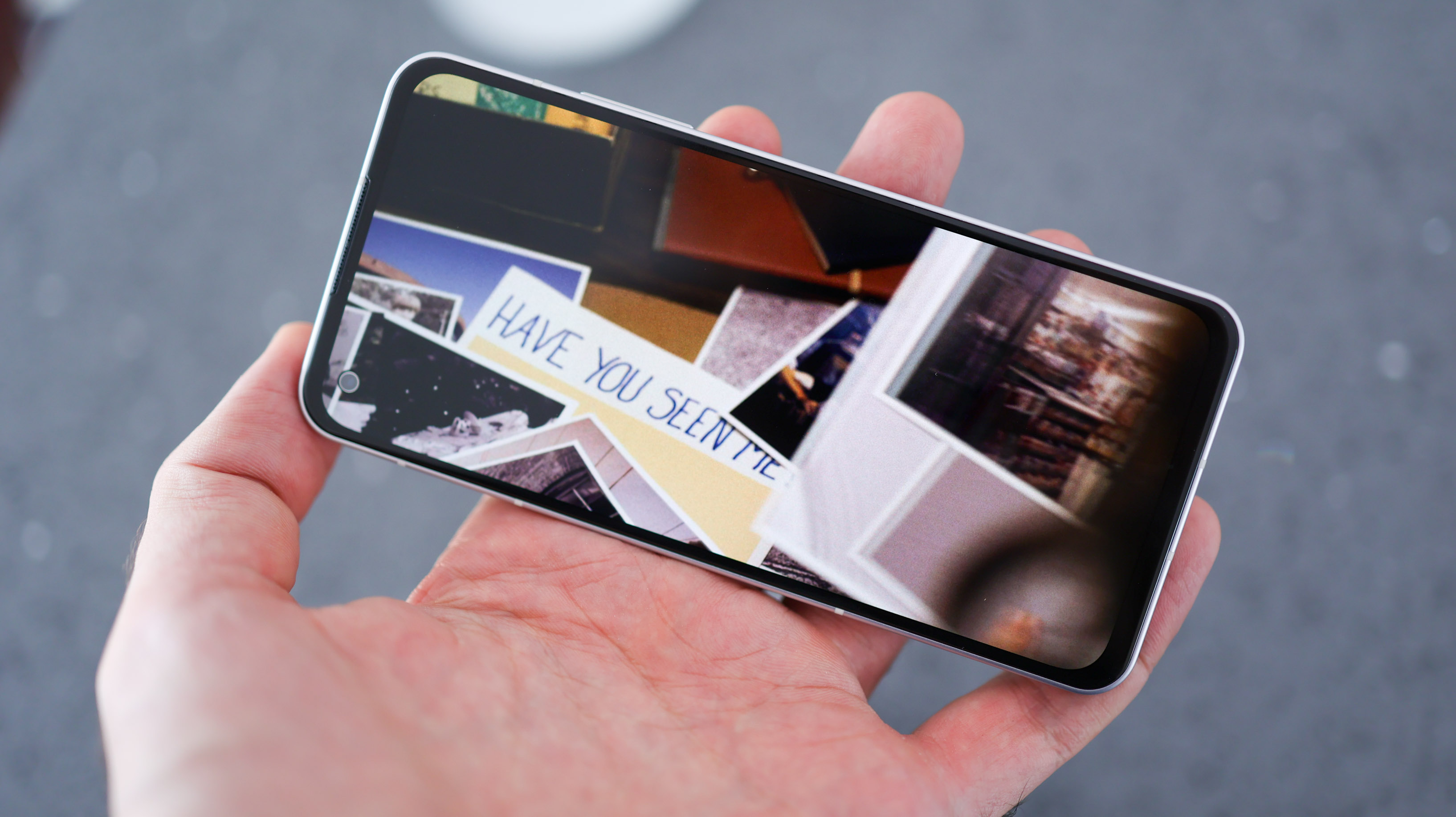
The Zenfone 9’s screen is sharp, too, with a pixel density of 445 pixels per inch (445ppi). This puts it on par with top-end iPhone handsets when it comes to clarity, and thanks to impressive viewing angles and responsiveness, it’s a general win on all fronts.
Perhaps the only drawback of the Zenfone 9’s screen is brightness, with its peak of 800 nits falling behind most flagships and even some mid-range phones. In turn, the Zenfone 9’s screen isn’t particularly easy to use in really sunny environments, slightly tarnishing an otherwise excellent screen experience.
Asus Zenfone 9 review: Cameras
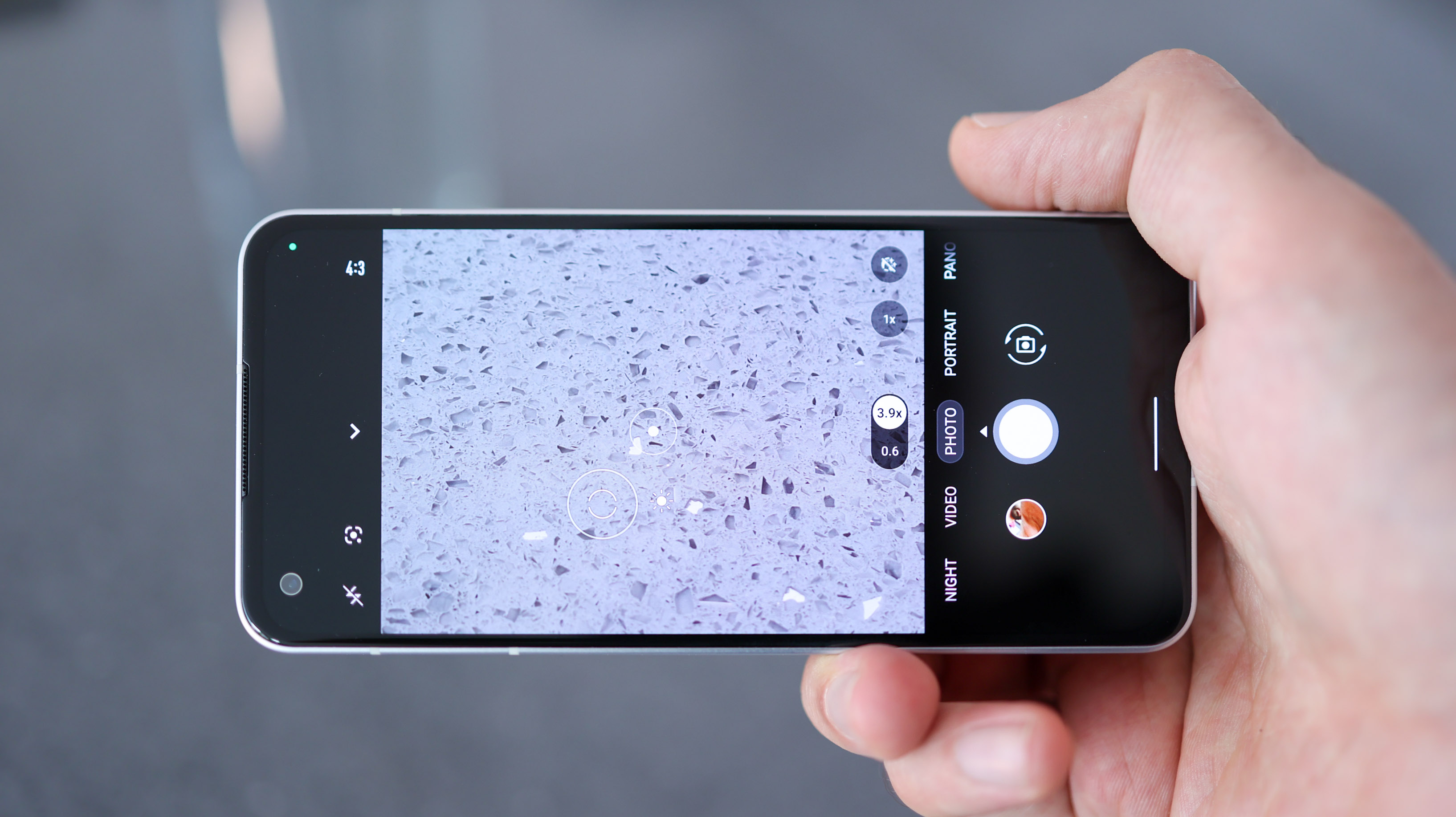
The headline-grabber about the Zenfone 9's camera is its gimbal stabilisation. If you don't know what a gimbal is, it's a system that you put cameras on to keep them steady. Kind of like optical image stabilisation on steroids, this system should, theoretically, help the Zenfone 9 get the very best from its 50MP, f/1.9 primary camera – high hopes have been set.
While a lot of flagship phones are loaded with three or four cameras, the Zenfone 9 keeps it simple – just like the Nothing Phone (1) – with just two cameras. The second is a 12MP ultra-wide camera which can also focus on close-up objects to take macro photos.
Even the Zenfone 9's 12MP selfie camera impresses on paper. Unlike most phones out now, it has autofocus, so your selfies can be up close or distanced, and you'll look sharp. It also shoots 4K selfie videos too.
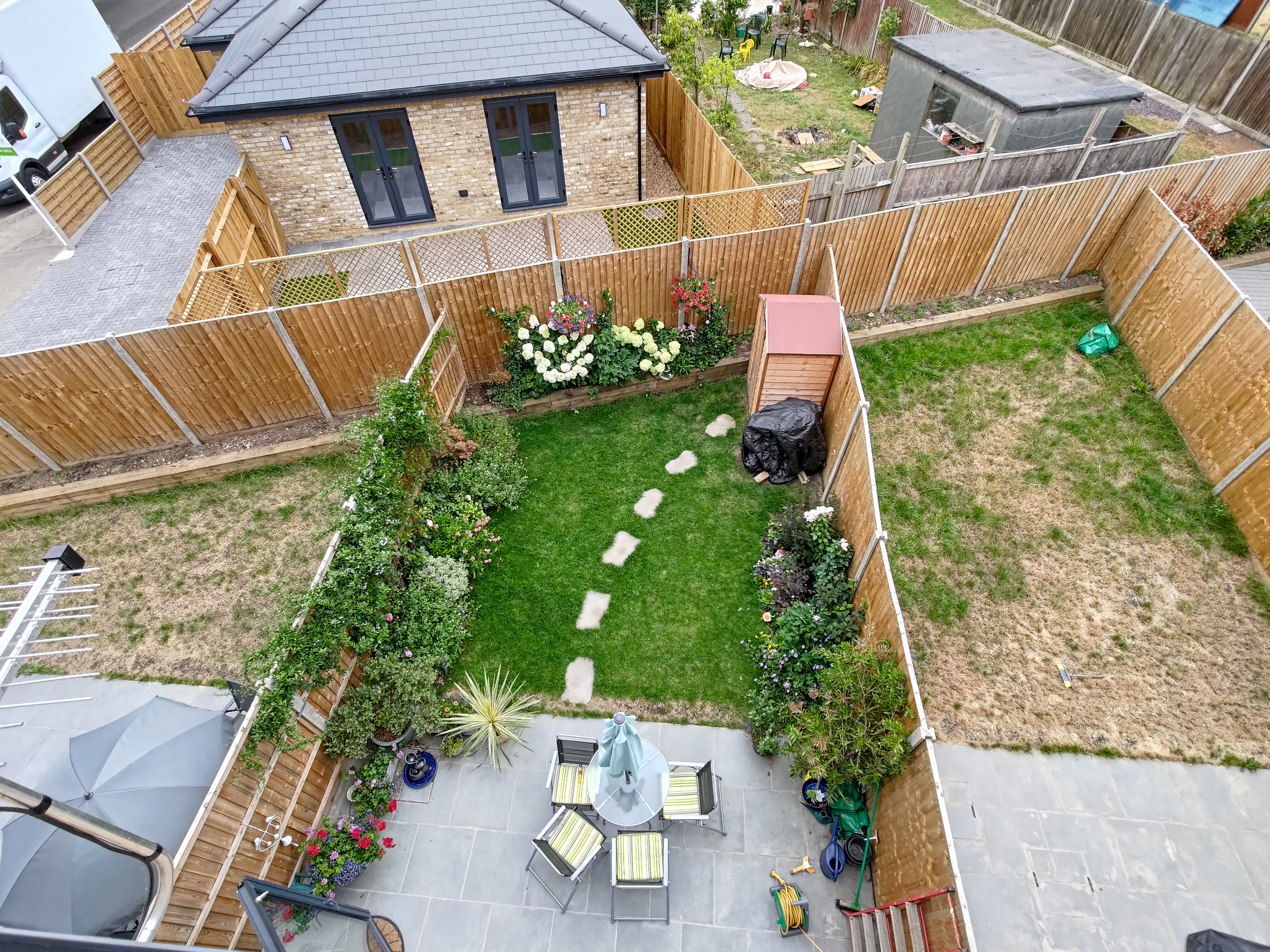
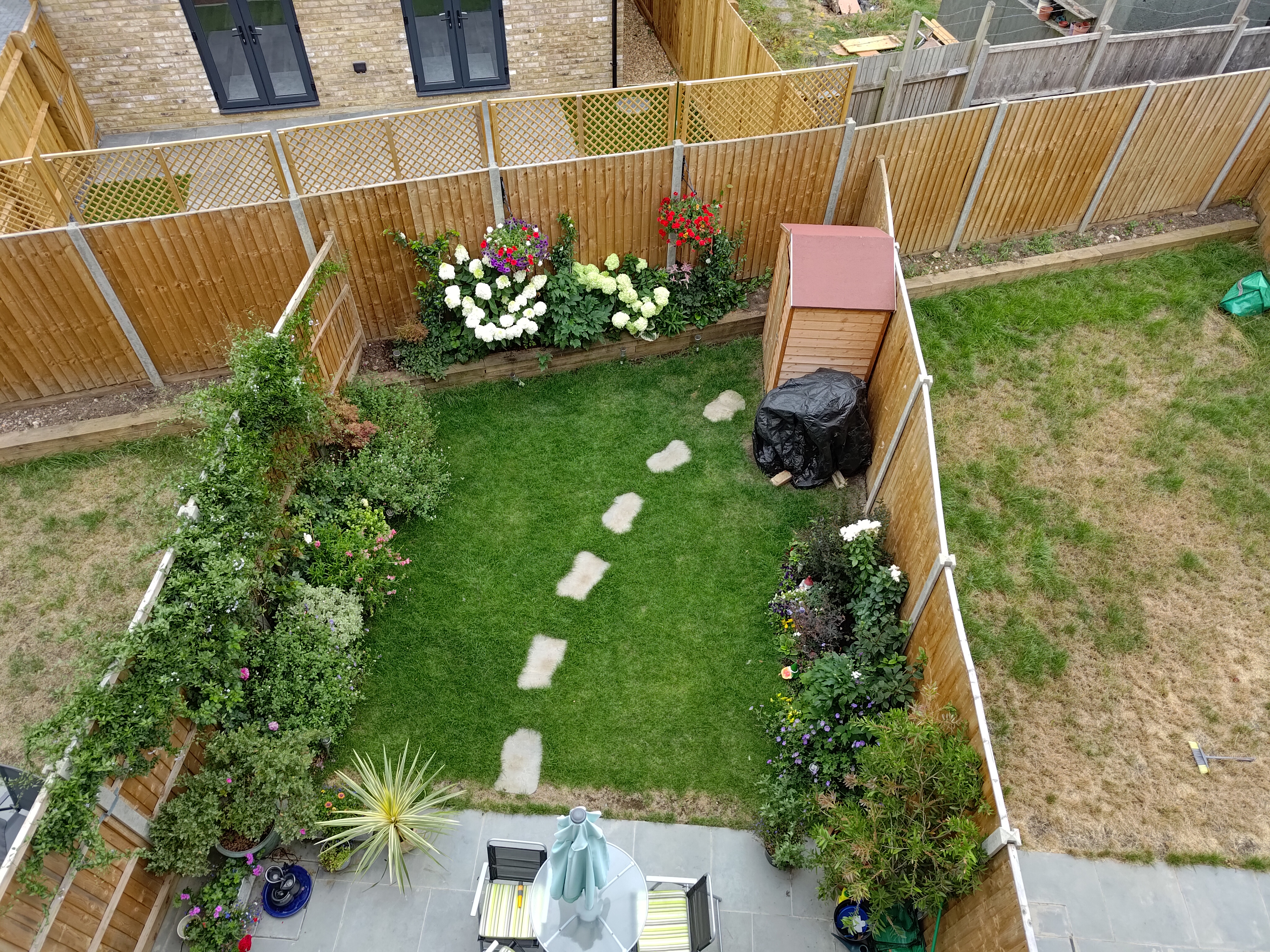
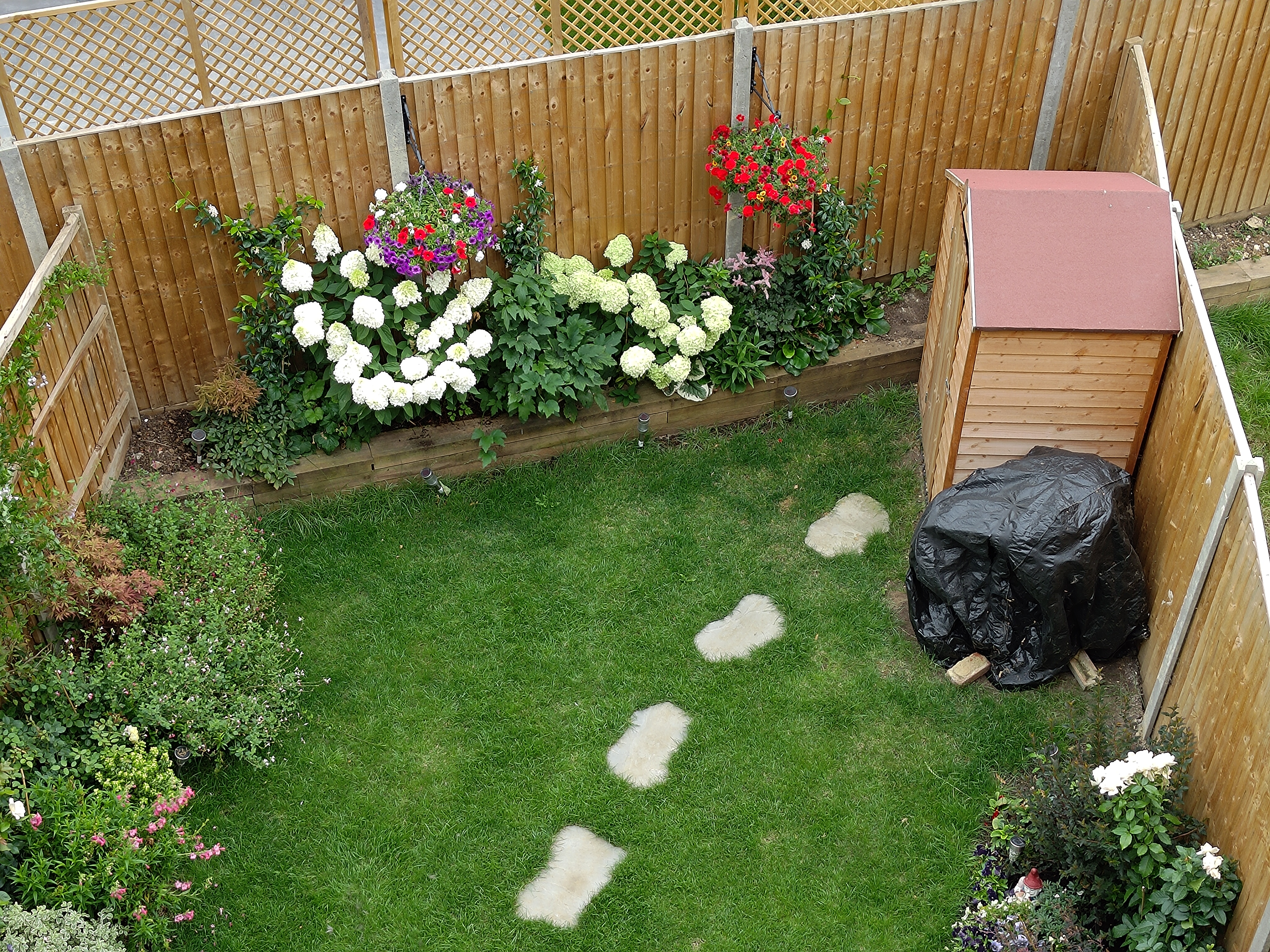
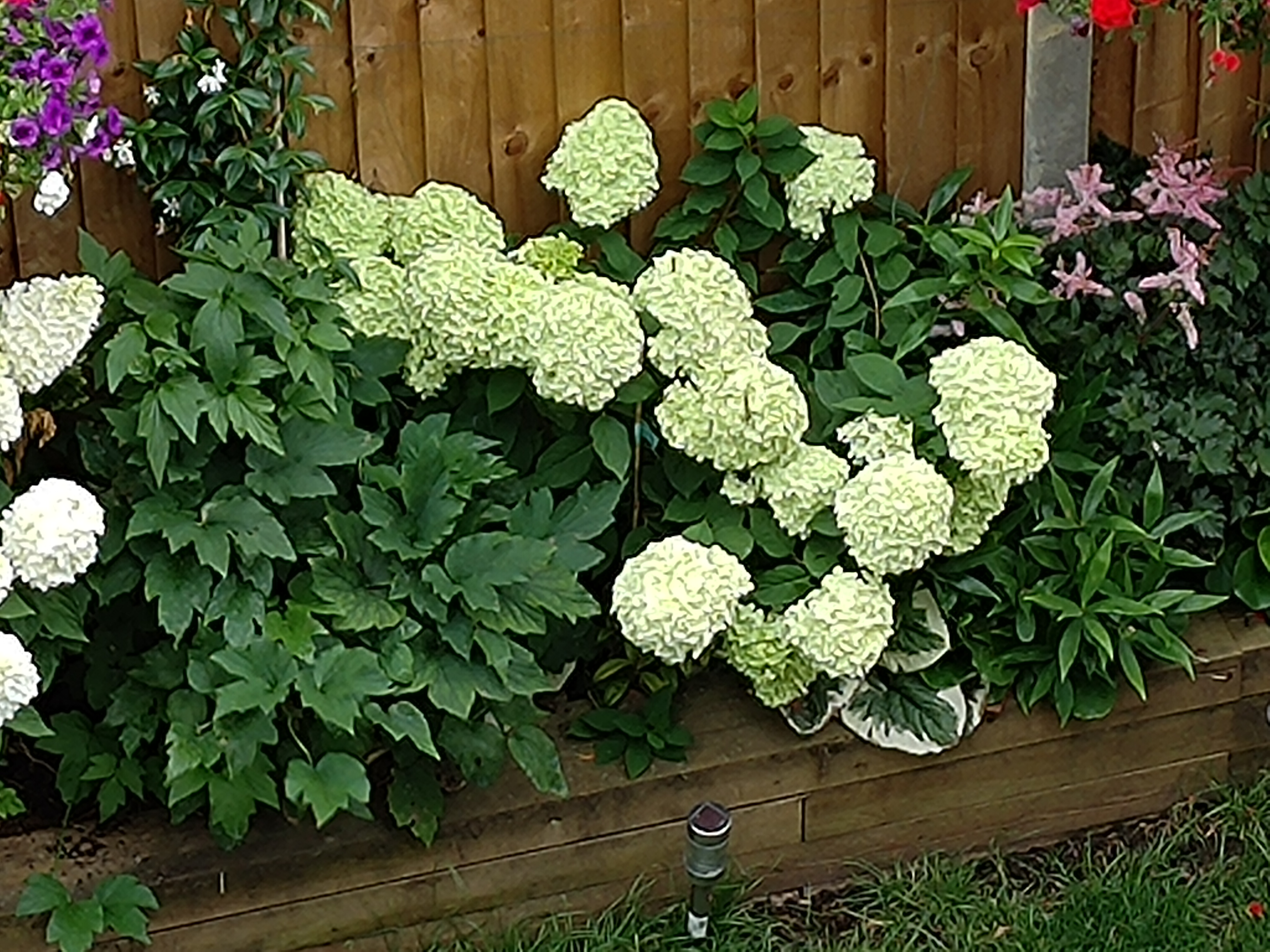
After a week using the Zenfone 9, there's no doubt about it – its camera isn't bad, but frustratingly, it isn't as good as it should be.
Asus' photo processing ramps up the contrast to create drama. Unfortunately, this means the Zenfone 9's images miss out on detail in dark areas. We know this is down to processing because we got some excellent results taking Raw photos in Pro Mode. The gimbal let us keep the shutter open for longer – so we could take bright handheld photos we'd struggle to capture on other phones.
This dramatic camera tuning is a deal-breaker for anyone who values camera performance above all else. If photo processing was better optimised, the Zenfone 9 could have been a five-star small-scale device; after all, the ultra-wide and selfie cameras are both decent performers. As it stands, unless an update refines the phone's processing, the Zenfone 9's main camera delivers good midrange performance, but can't stack up to the best cameraphone flagships.
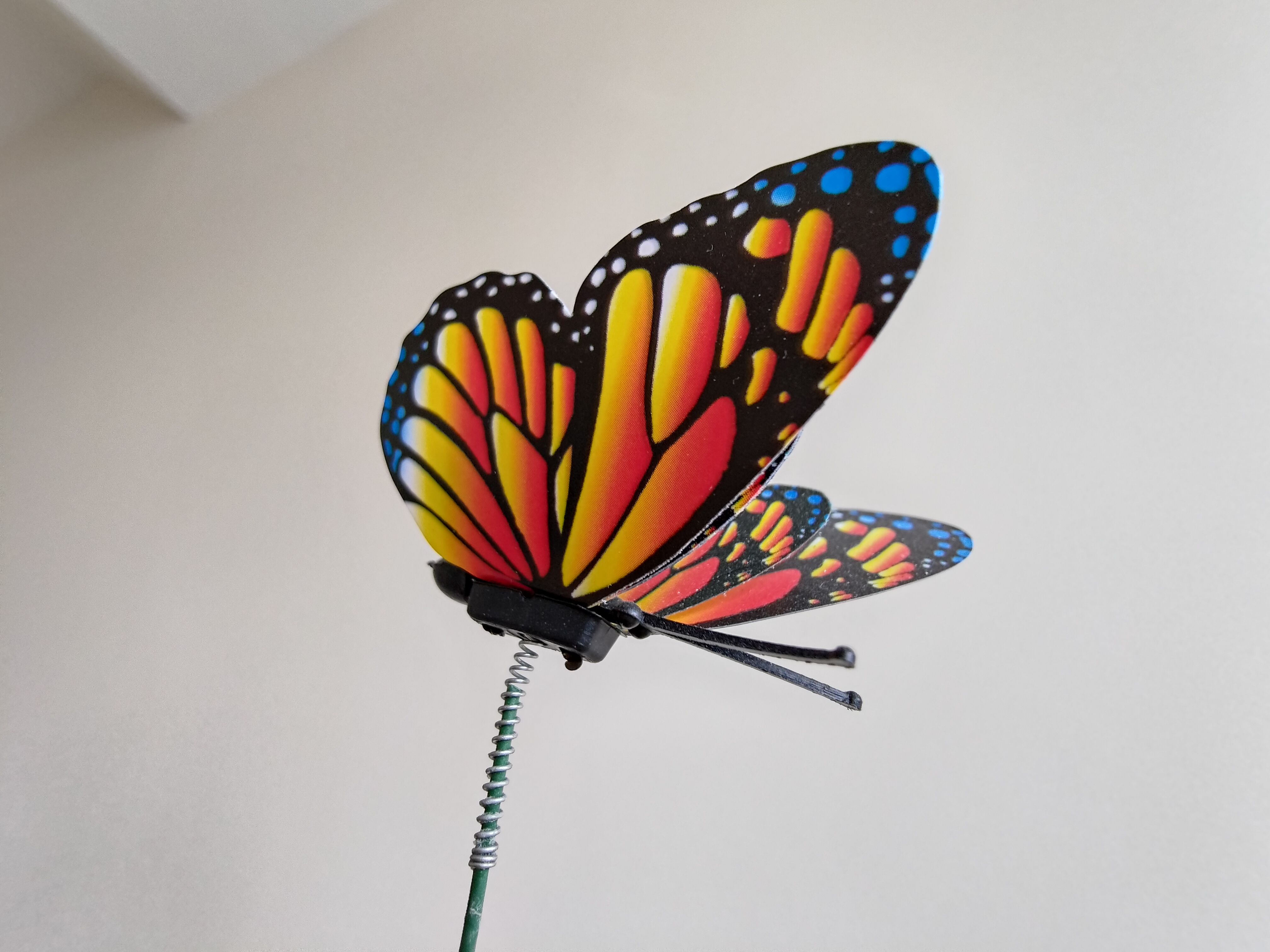


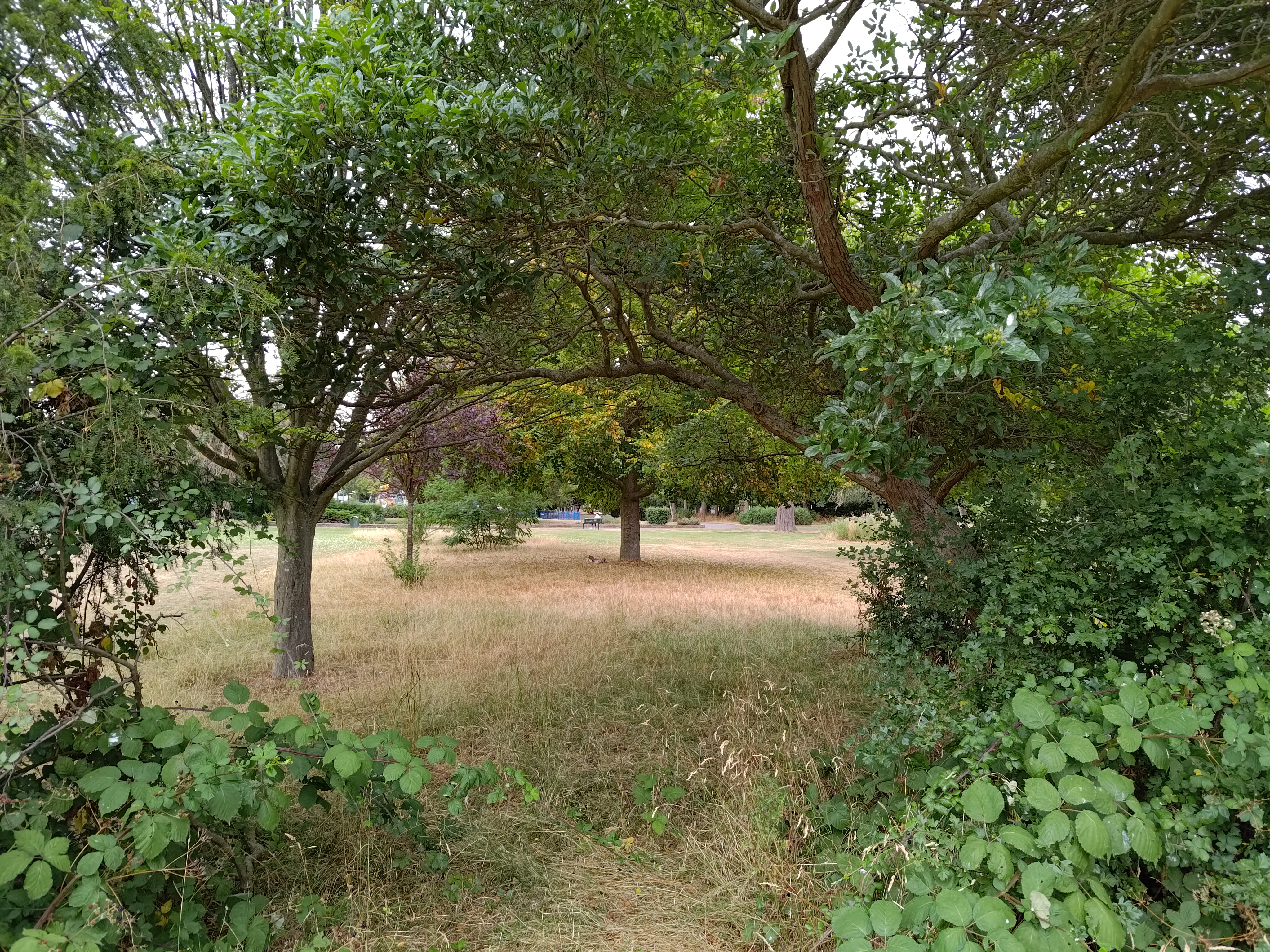





As you can see in the photo of the butterfly above, when you take a close-up photo with the macro camera, it captures detail the main camera just can't pull out. This makes it a valuable addition and makes up for the fact there are just two cameras around the back.
The phone also has a powerful night mode too that does a decent job in low light, and works across the primary, ultra-wide and selfie cameras.
The Zenfone 9's selfie camera is generally impressive. We've touched on the fact autofocus is great to have, but its snaps are also flattering. The default beauty filter is a bit more pared back when compared to much of the competition, so photos look natural, and the portrait mode works relatively well. Like the main camera, though, it captures high-contrast photos with low shadow detail.
Where the Zenfone 9's camera edges ahead of most of the competition is 4K and 8K video recording. The gimbal stabilisation does a fantastic job of keeping footage steady, and the results look excellent.
We wish Asus did what Apple does though – give users options to select their photo's looks when they first fire up the phone. After all, a more natural, slightly flatter look to the Zenfone 9's pics would have helped it be a much better camera phone.
Asus Zenfone 9 review: Performance
One area the Zenfone 9 definitely doesn't drop the ball is in performance. This small phone is loaded up with massive amounts of power. For starters, there's a Qualcomm Snapdragon 8+ Gen 1 chip making sure it can keep up with the latest 3D games. That also means apps run like a dream, from simple ones like Instagram through to more demanding ones – video editors and photo processing tools like Lightroom.
The phone we reviewed has a massive 16GB RAM and 256GB storage, making sure the Zenfone 9 is maxed out on the memory front and going toe-to-toe with the best out there. It's also available with 8GB RAM and 128GB storage, and while we don't anticipate any performance issues in that configuration, if you're a file or app hoarder and plan on keeping the phone for a while, 256GB might be the safer option given there's no memory expansion.
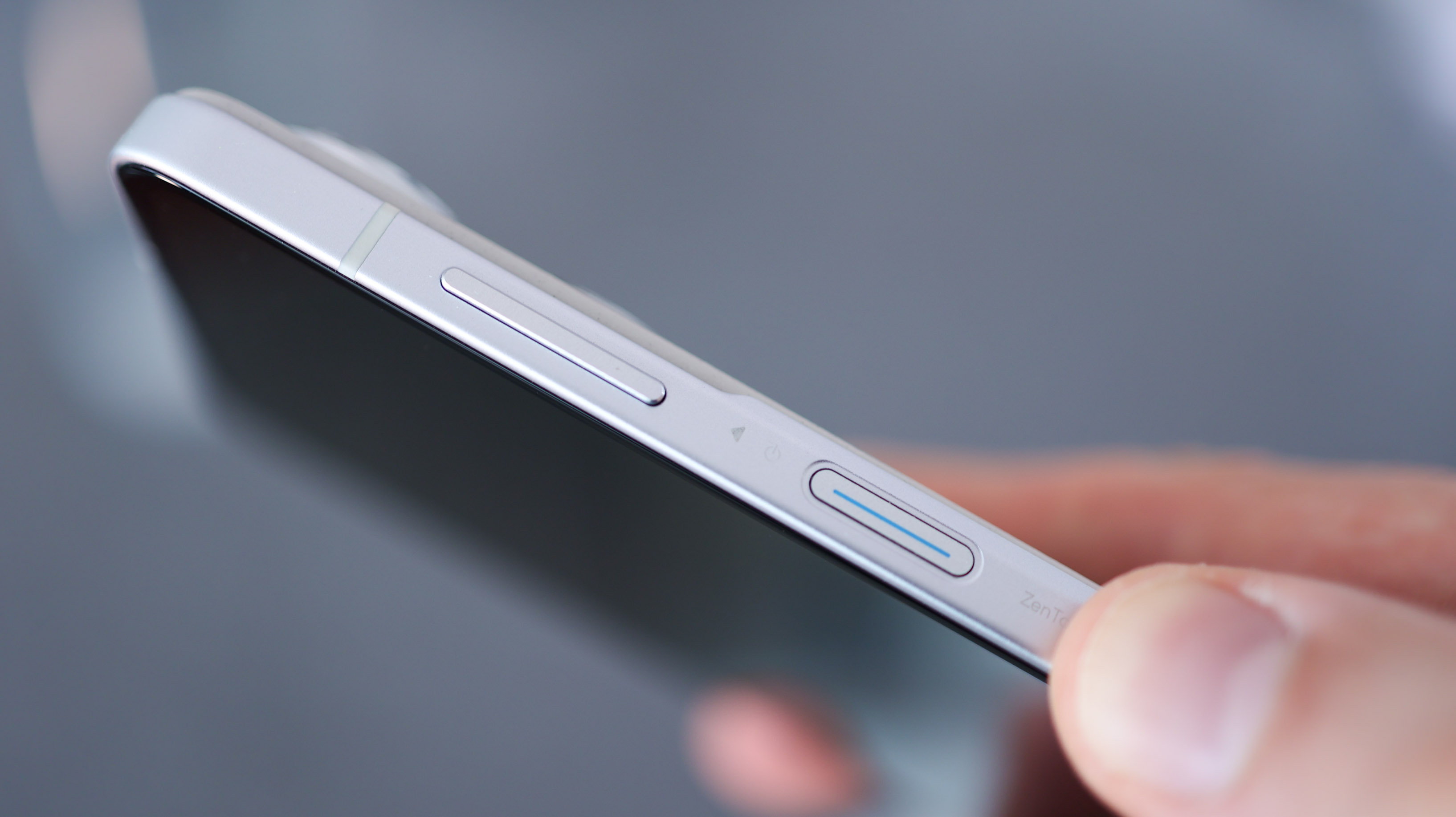
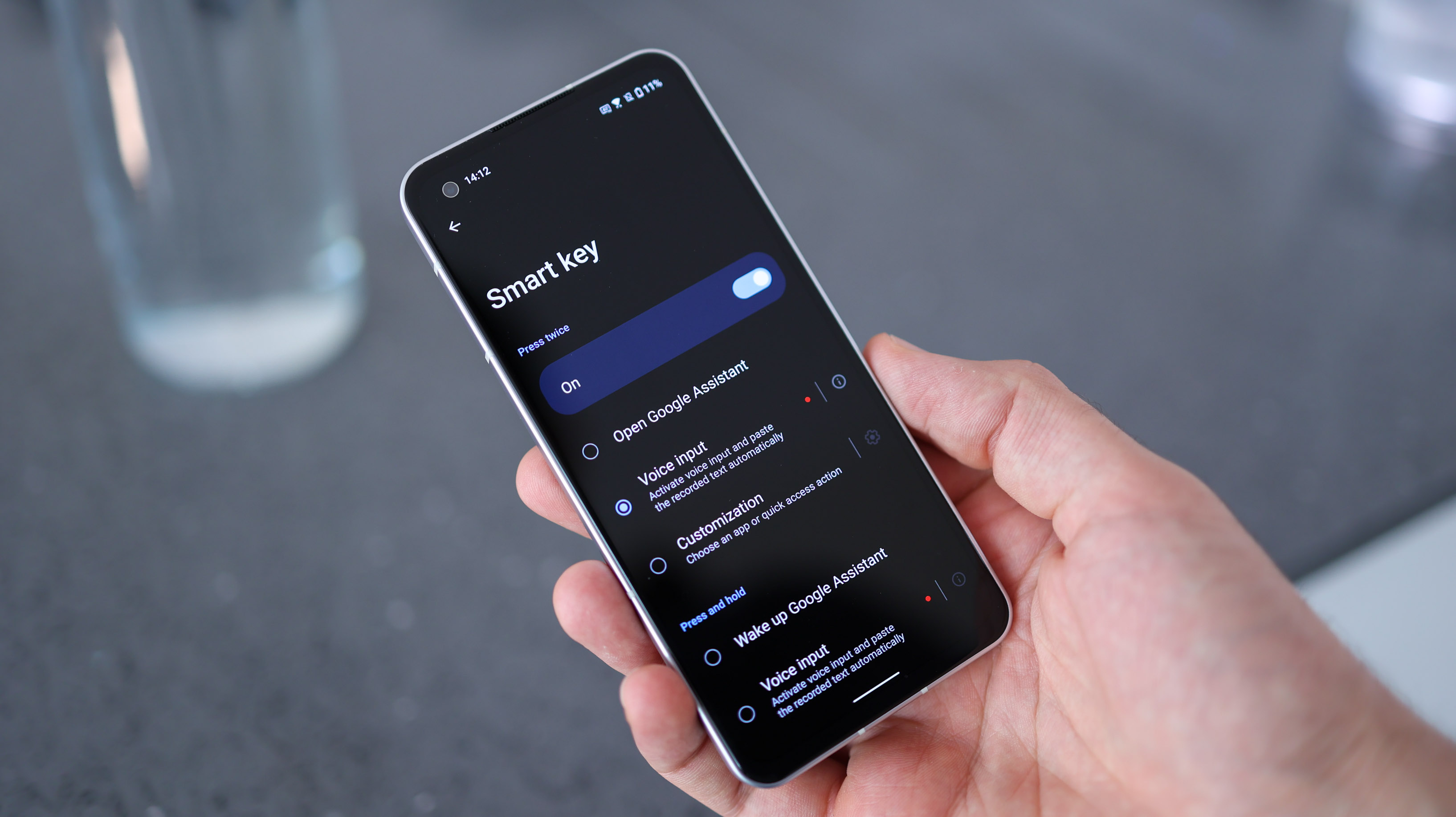
Asus doesn't stop at making the phone powerful. The Zenfone 9 has a fingerprint scanner and power button combo that's also touch sensitive. In the settings, it's called a Smart Key, and you can interact with it to activate a command.
You can set up to four shortcuts to the key – swipe up, swipe down, long press and double press – each of which can open an app or shortcut. You can even double-tap the back of the phone as another smart input – so you can access five of your most used apps or features without even touching the screen.
This goes back to Asus' identity as a PC and laptop maker. Geeks will love this – I loved it and used the feature to full effect while reviewing the Zenfone 9. That said, it's a level of complication you just wouldn't see from Apple.
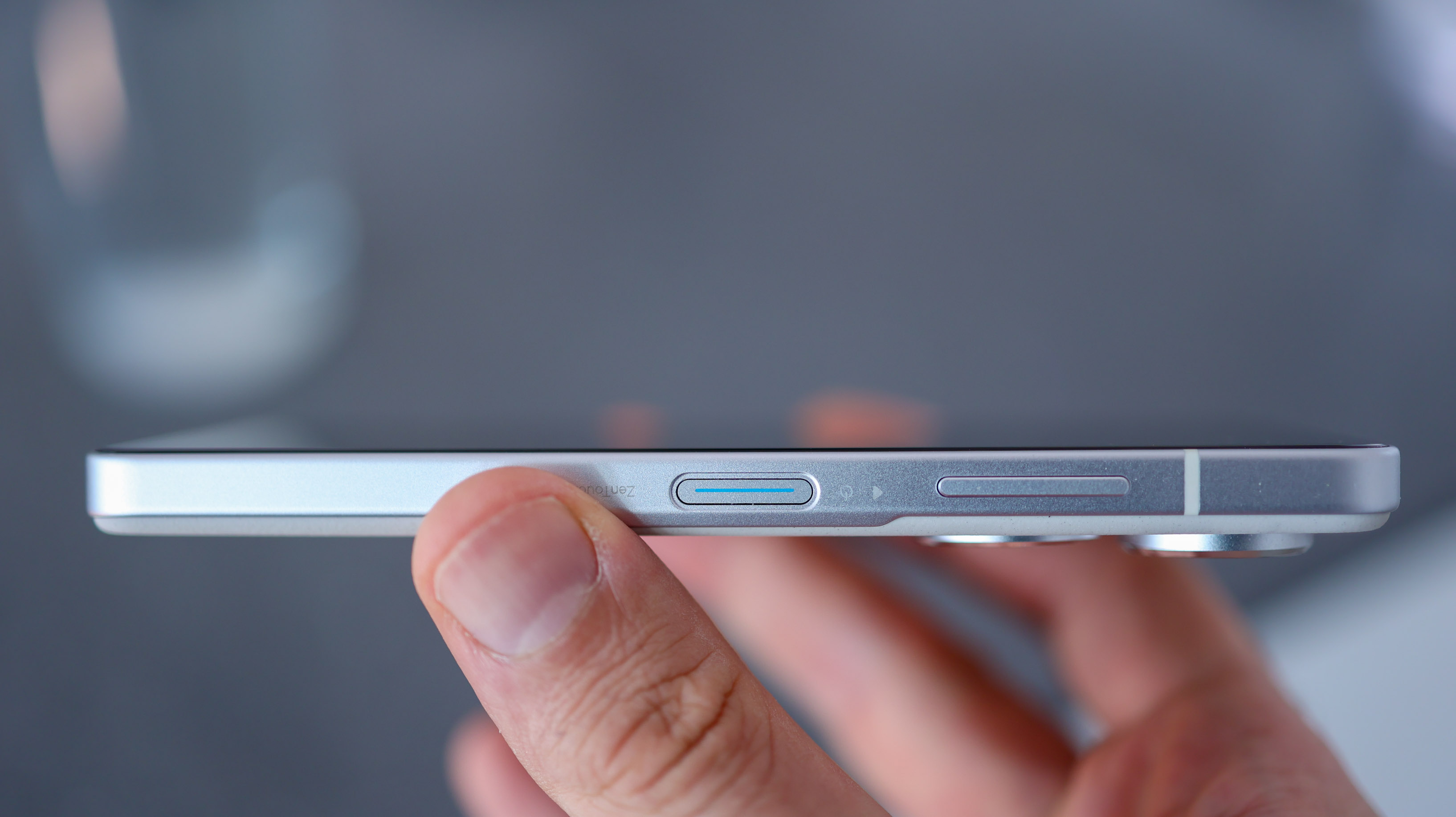
Almost every aspect of the Zenfone 9's performance impresses though. It manages heat brilliantly – staying cool most of the time, and only getting warm after long bouts of gaming or 5G downloading.
Asus also does a decent job of making its take on Android 12 a happy marriage of stock and souped-up. In addition to the Smart Key and shortcuts we've covered, the phone features a light version of the ROG Phone 6's Game Genie, an in-game menu to help you edge ahead with features like macro input recording, and you can limit background interruptions here too.
Asus is also one of the best brands for audio fans who want to take control of their listening. The phone sounds great for a small handset, with stereo speakers that deliver broad sound, and there's a headphone jack for wired music lovers. With audio tuned by Dirac, the Zenfone 9 sounds better than most other small phones, and there's a customisable EQ, too, so you can make your tunes sound the way you want them to.
Asus Zenfone 9 review: Battery and charging
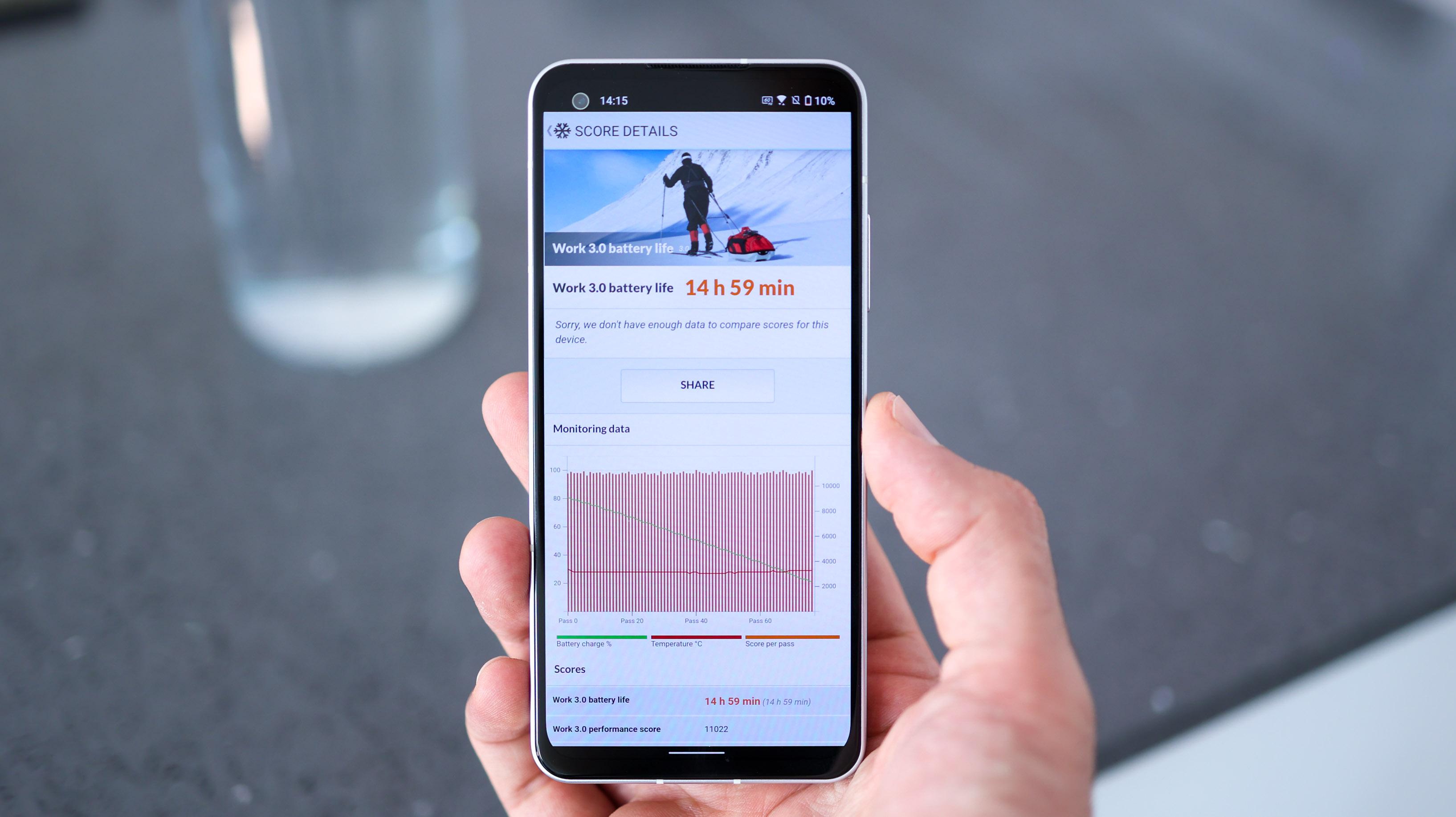
The Zenfone 9's battery life is brilliant too. We thought its small, 4,300mAh cell would throw up some issues, but no. In our benchmarks, it outperformed its main competition, the Xiaomi 12, with hours of extra screen on time. In the real world, we could get through a day with around 30 per cent remaining unless we were really hammering 5G downloads or mobile gaming. That suggests with careful use, you could probably eke two days out of it.
There's no wireless charging here, and there's no fast 60/100/150W charging as found on other phones like the Realme GT Neo 3. But the Zenfone 9 does power up at an iPhone-beating 30W, so charges up in a little over an hour.
Asus Zenfone 9: Verdict
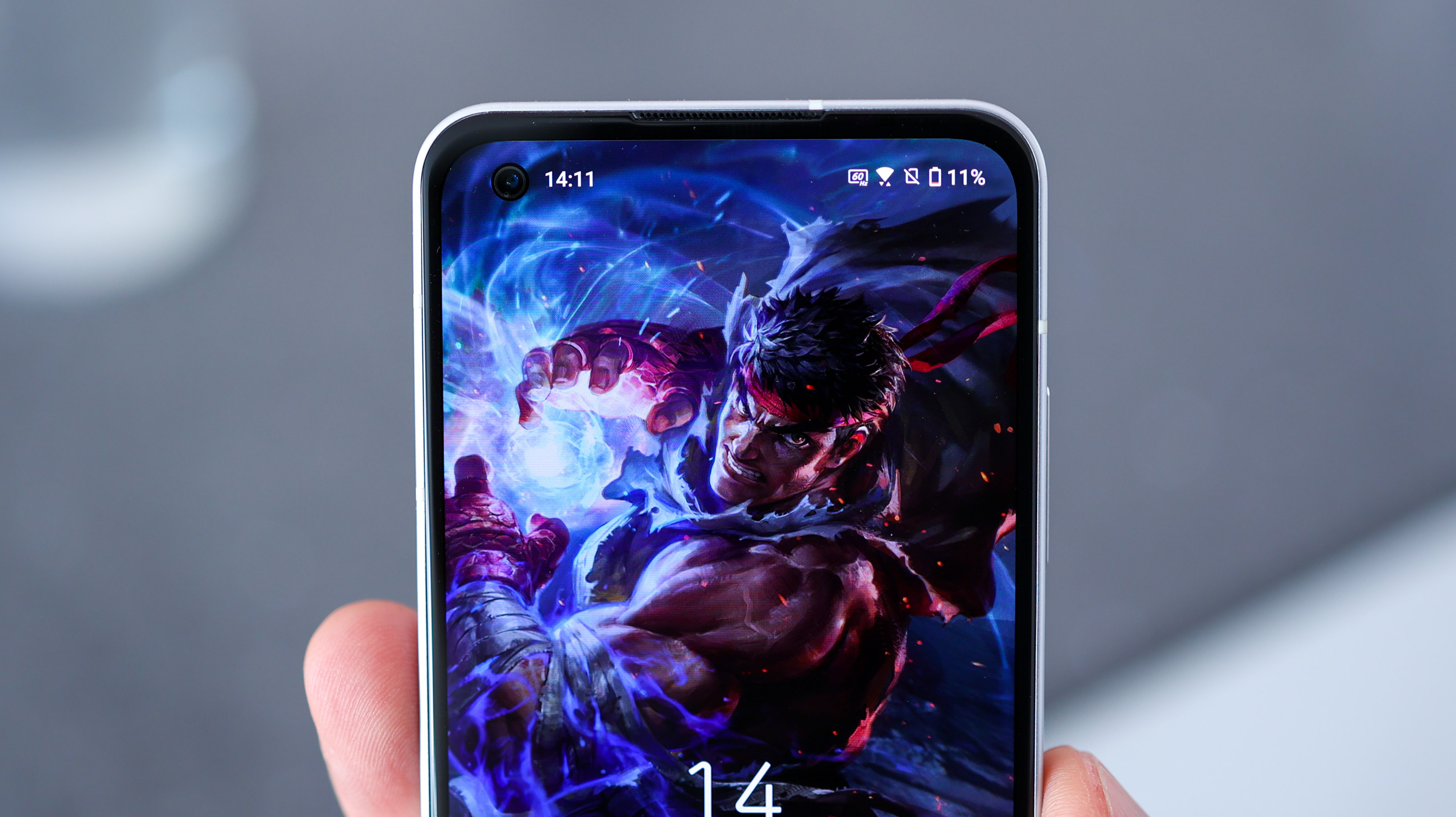
The most frustrating thing about the Asus Zenfone 9 is how good it is – and more to the point, how close it is to being a complete package. Its design scratches an itch for anyone looking for a powerful small phone, while its screen and speakers are good, and we can even forgive its lack of wireless charging.
When we're spending £/$699 or more, though, we'd hope for a better primary camera than the gimbal-stabilised 50MP shooter. In its current state, it's a bit of a blunt tool for photos, which is a shame given that its ultra-wide and selfie cameras outperform much of the competition, plus its video capture is excellent.
If you're happy with a good camera that isn't best-in-class, you'll probably love the Zenfone. It's a really compelling little package. If however, you're a photography nut who's looking for the mightiest main camera around in a tiny package, despite being close – very close – this isn't quite it.
Also consider
If you're impressed by the Zenfone 9's size, but want something a bit more classical looking, the Xiaomi 12 is a great alternative with a glass and metal design and a curved AMOLED screen. It also sports wireless charging and powers up a bit faster than Asus' Zenfone – but it won't stay as cool when gaming.
Anyone who doesn't need flagship power might want to consider the Google Pixel 6a. It's a much cheaper alternative to the Zenfone 9, and while it misses out on many of its quirky features, the Pixel's camera is more refined. It's also another relatively compact, lightweight option too.
Finally, the Oppo Find X5 is a solid option which is a bit bigger, but takes the same sensor in the Asus Zenfone 9's camera, and ekes better results from it. While not as powerful as the Zenfone, the Find X5 is still a mighty, relatively compact smartphone.
Sign up to the T3 newsletter for smarter living straight to your inbox
Get all the latest news, reviews, deals and buying guides on gorgeous tech, home and active products from the T3 experts

Basil has been writing about tech for over 12 years, with bylines in TechRadar, Metro, Wired, and Digital Camera World – to name but a few titles. He expertly covers everything from mobile phones to smart devices, cameras, audio-visual hardware, and kitchen tech. In addition to his extensive journalism experience, Basil is also skilled in video production, content strategy, and vegan baking, and runs Tech[edit], a technology-focused YouTube channel.
-
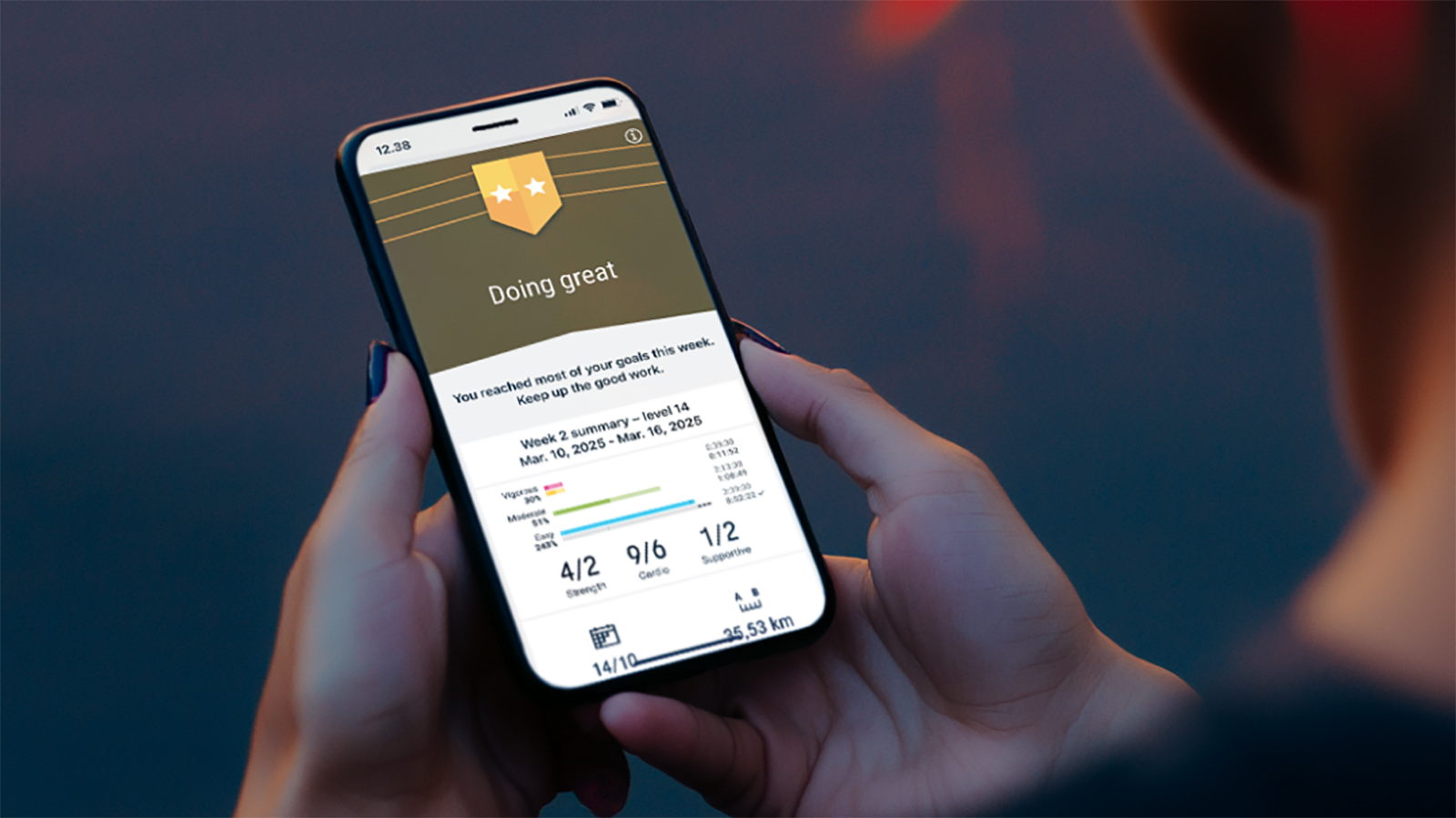 Polar’s new subscription feature lands in the shadow of Garmin’s Connect+ rollout
Polar’s new subscription feature lands in the shadow of Garmin’s Connect+ rolloutPR genius or timing disaster? Polar’s new Fitness Programme adds adaptive training to its ecosystem
By Matt Kollat Published
-
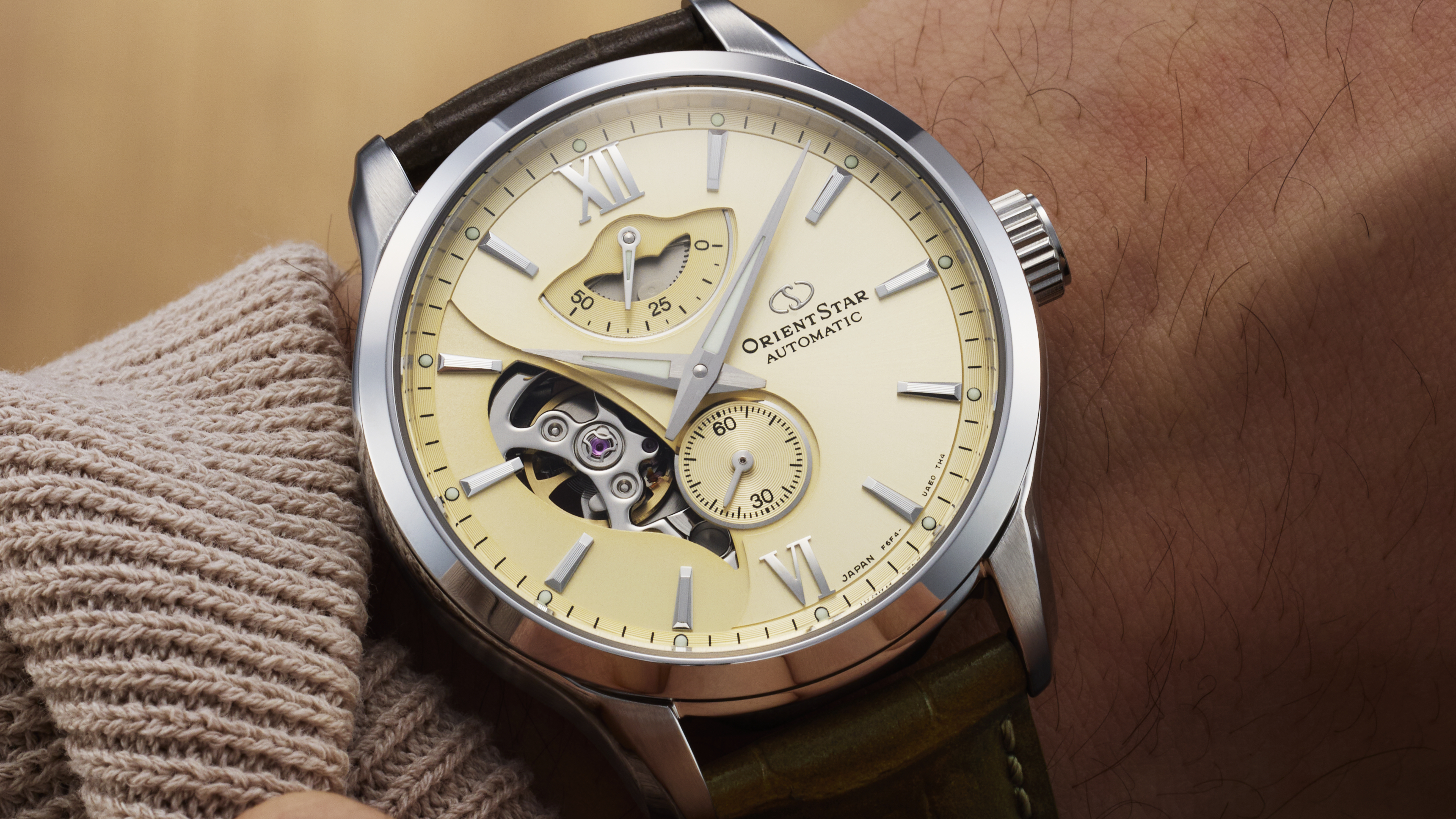 New Orient Star watches offer a glimpse of the magic within
New Orient Star watches offer a glimpse of the magic withinThere are two new skeleton pieces
By Sam Cross Published
-
 Netflix's most surprising 100%-rated sci-fi series returns with gorgeous trailer
Netflix's most surprising 100%-rated sci-fi series returns with gorgeous trailerLove Death + Robots is back for more
By Max Freeman-Mills Published